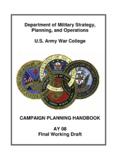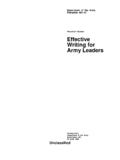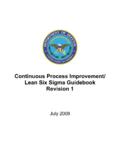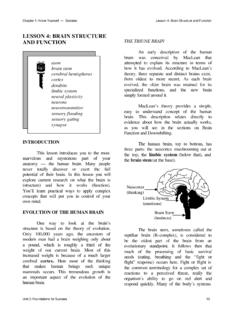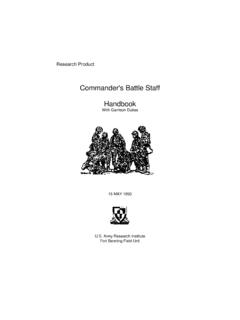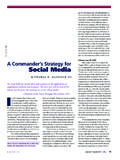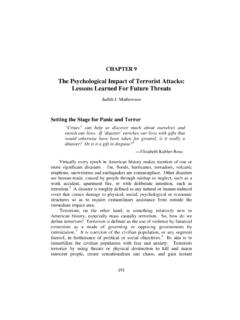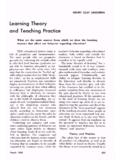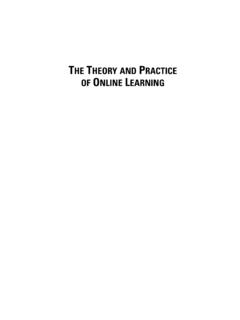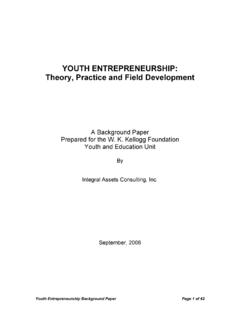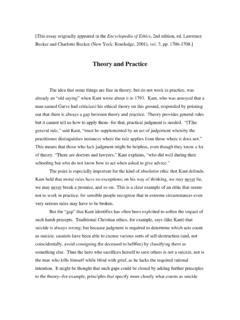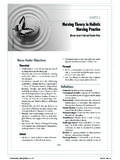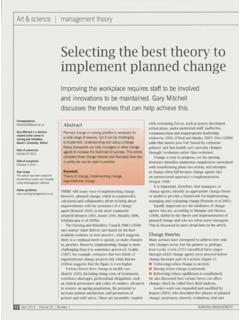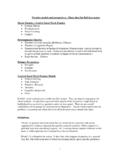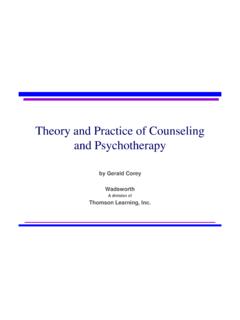Transcription of LESSON 1 GRAND STRATEGY: THEORY AND PRACTICE
1 LESSON 1 GRAND strategy : THEORY AND PRACTICE The roots of victory and defeat often have to be sought far from the battlefield, in political, social, and economic factors, which explain why armies are constituted as they are, and why their leaders conduct them in the way they do. Michael Howard, noted author and editor of Clausewitz s On War LESSON Introduction Strategic Studies is a relatively new discipline; it only became a serious academic subject as a sub-field of International Relations scholarship in the 1950s. Beforehand, strategy was the province of primarily military officers, and only a handful of those officers explored the full political-military dimension of strategy as a concept. As such, the "idea" of strategy and strategic thinking confronts the student and strategist alike with many problems, not the least of which is the rapidly evolving nature of the concept itself and the influence of "real world" events on its development.
2 Nevertheless, the subject is of extreme importance because it is concerned with issues of the utmost significance at the national and international level. In that regard, strategy has always been intimately connected with planning wars and fighting them, but strategy is much more. Fundamentally, strategy is about how states use power in a military, economic, diplomatic, or other manner to achieve political objectives. It therefore cannot be repeated too often that military power is but one means among many to achieve political ends. As a result, purely military definitions of strategy have virtually disappeared because they fail to encompass the scope of strategic thinking. Nevertheless, although strategy is as much about peace as it is about war, it is generally recognized that, if we fail to properly manage the former, we must be prepared to execute the latter. This LESSON is designed to help you understand the nature of strategic thinking and how that translates into the development and execution of strategy .
3 Thus, you will gain a better understanding of how operational planning and execution is linked to strategy and policy at the highest levels in our government. Also, this LESSON will promote your understanding of how, to a great extent, operational planning and its execution shapes the profession of arms to which each of you belong. 1 - 1 Student Requirements by Educational Objective Requirement 1 Objective 1. Describe the various characteristics that make up the strategic environment. [JPME Area 3(d)] Read: - MCDP 1-1, strategy , 12 November 1997, Chapter 1. The Strategic Environment, pp. 9 to 33 (24 pages), pp. 109 to 111 (endnotes) Objective 2. Explain International Relations (IR) THEORY and relate it to our understanding of important security issues that shape strategy . [JPME Areas 2(b), 3(b), 3(d)] Joseph Nye argues that even though the world is shrinking, some things about international politics have remained the same over the ages.
4 His analysis of the two antagonists in the Peloponnesian War reveals that very similar characteristics exist between that war and the Arab-Israeli conflict after 1947. Moreover, Nye professes that alliances, balances of power, and choices in policy between war and compromise have remained similar over the millennia. The peoples who live in the nearly 200 countries on this globe want their independence, separate cultures, and different languages. As his focus orients on international politics, Nye s thesis is that there are legal, political and social differences between domestic and international politics. The study of international conflict is an inexact science that combines history and THEORY . It is essential that students keep both in mind as they read Nye s article and, in particular, that they observe what has changed and what has remained constant. Read: - Joseph Nye, Understanding International Conflicts, Third ed.
5 , New York: Longman, 2000. Chapter 1, Is There an Enduring Logic of Conflict in World Politics? pp. 1 to11 (12 pgs) International relations is a compelling subject of rich complexity. Traditionally, the study of IR has focused on questions of war and peace, that is, the contest of political wills in the international arena, the crafting of alliances, and the clash of armies. In that regard, IR scholars want to know why international events occur, why nation states behave the way they do, why wars break out, and so forth. One kind of answer is descriptive: a war breaks out because of a crucial decision by a particular leader. Another kind of answer seeks to discern general explanations: for instance, war may break out as a consequence of a general pattern in which economic issues inexorably lead to conflict. This kind of answer is theoretical because it places the particular event in the context of a more general pattern that is applicable across multiple cases.
6 The strategy and Policy course, not unlike the study of IR itself, is concerned with both descriptive and theoretical knowledge, for, as Thucydides points out, it would do little good to merely describe 1 - 2events without drawing useful lessons from them; nor, in addition, would it be useful to concentrate on purely abstract THEORY without regard for the real world. The study of IR is practical in that there is a close connection between IR scholarship and the policy-making community, and this relationship informs and shapes strategic decision-making. In 1992, former Secretary of State Henry Kissinger and then Secretary of State James Baker III debated the merits of the first Bush Administration s willingness to embrace the reforms of Soviet President Mikhail Gorbachev. Baker argued that, should Gorbachev s reforms take hold, the competition between the and Russia would be reduced if not eliminated as Russia was transformed into a less autocratic and aggressive state.
7 To Dr. Kissinger, Baker s view was in error in that it was rooted in the assumption that the only meaningful conflict in world politics was the one between democracy and communism and, by extension, the competition between the and the former USSR. According to Kissinger, this worldview is myopic, not taking into account the lessons of history and failing to consider Russian interests beyond the promotion of its former communist ideology. As he later explained, any democratic transformation of Russia would still upset the existing balance of power and Russia would seek to redress that imbalance. As Russian behavior during the debate preceding the most recent war with Iraq has amply demonstrated, Kissinger had a point. Russia, France, and Germany pursued their own national interests as they understood them, and these interests were clearly at odds with those of the United States. As the exchange between Kissinger and Baker illustrates, worldview matters.
8 It shapes policy and informs strategic thinking. As global change proceeds apace, we are confronted with the challenge of making the right policy choices. How do we avoid repeating mistakes of the past? What are our objectives and how do we employ the means at our disposal to achieve those ends? One way to probe these and other questions is to examine current events (and history) using the theories embodied in the time-tested classics of international relations (IR) scholarship. Despite its ambiguous reputation, IR is a practical discipline in that there has always been a close connection between IR theories and policy-making. For example, in July 2002 a reporter queried President Bush s National Security Advisor, Condoleeza Rice, about the issues that informed her thinking on policy matters. She replied: We had this talk, as you know [back in 1999] the balance of power, realism versus ideals, power and values. And I said then, and I still believe, that they're inseparable.
9 Clearly, the balance of power mattered when we defeated the Soviet you should never forget how powerful [our] ideals are. And every time, we tend to underestimate you just forget how very powerful human dignity is as a principle of human behavior and how much it's supported by democracy. Thus, as Dr. Rice alludes, by examining the theoretical underpinnings of IR scholarship, we can place the current policy debate (whatever it might be at the moment) in a critical light and engage in a connected inquiry. 1 - 3In light of the above, theorists agree that ideas shape decisions, and as Clausewitz posited, the decision to go to war is perhaps the supreme political choice. It is, of course, the military leader who must implement that decision to go to war. Therefore, the military professional must come to terms with the Clausewitzian proof of the necessity of choice. In so doing, the strategist must consider three questions: 1.
10 What is our objective? 2. What obstacles or threats interfere with achieving our object? 3. What, then, should we do? These questions address the matter of strategic choice in the present and in the future. These questions also help us examine past strategic decisions. What were the objectives of states in the past? How did political actors of the time interpret threats and shape their policies in that context? What choices did they make? What was the result? With the advantage of hindsight, we can analyze their actions. We can ask why they made the decisions they made. And, in determining whether the policies they pursued were successful, we can refine our own strategic choices. The assigned chapter from Nye s book, Understanding International Conflicts, illustrates the basics of realist versus liberal IR THEORY . The realist worldview can be said to have originated with Thucydides and Sun Tzu. Sun Tzu advised rulers regarding how to use power to advance their interests.
